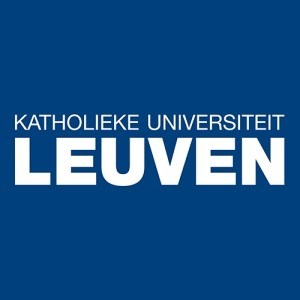Photos of university / #kuleuven
Five themes span the entire curriculum. Engineering, enterprising and educating are connected to engineers’ societal role: to design and build things starting from a strong vision to improve people’s lives. Environmenting involves an awareness of the various interwoven aspects – nature, culture, technology. Finally, ensembling allows engineers to approach things from a ‘big-picture’ perspective.
Structure
The Bachelor of Industrial Sciences is an academic bachelor's programme consisting of 3 programme stages of 60 ECTS each, for a total of 180 ECTS. Each programme is comprised of:
- a joint part common to all bachelor's programmes
- a specific part tailored to the student's chosen major
The joint part offers general scientific and technological training in the four major basic sciences (physics, chemistry, biology and mathematics) and their corresponding technological fields (energy, matter, life and information technology).
In the second stage of the programme, you select an orientation as a run-up to your choice of major in the third programme stage:
- Electromechanical and Electronic Engineering
- Chemical and Biochemical Engineering
In the third programme stage, you choose between three majors:
- Electromechanical Engineering
- Electronic Engineering
- Chemical Engineering (with an option in either Chemical Engineering or Biochemical Engineering)
Common Part
Energy Technology / Physics
- Dynamics of a Particle
- Electricity and Magnetism
- Statics of Rigid Bodies
- Physics of Extended Bodies
- Thermodynamics
- Strength of Materials
- Electromagnetism
-
Matter Technology / Chemistry
- Chemistry and Chemical Technology
- Technology of Materials
- Chemistry for Polymers
-
Life Technology / Biology
- Biological and Emergent Systems
- Biotechnology
-
Information Technology / Mathematics
- Calculus
- Linear Algebra and Geometry
- Electronic Circuits
- Computers and Programming
- Object-Oriented Programming
- Signals and Systems
- Statistics
-
Management / Communication
- Management I: Introduction to Management / Engineers and Enterprises
- Communication I: Aspects of Professional Communication / Presentation Skills
- Management II: Marketing and Financial Management / Management Game
- Communication II: Scientific Writing / Intercultural Communication
- Management III: Operations and Project Management
- Communication III: Negotiation and Meeting Skills / Persuasion
-
Holistic Engineering Experiences
- Engineering Experience 2: Introduction to Engineering Design
- Engineering Experience 3: Computer-Based Control
- Philosophy of Technology and Engineering
- Society, Technology and Engineering
- Religions
-
Specialisation: Electromechanical Engineering
- Engineering Experience 4 - Electromechanical Engineering
- Electrical Engineering
- Dynamics of Rigid Bodies
- Aspects of Industrial Automation
- Components of Industrial Automation
- Control Theory
- Mechanical Design
- Machine Parts
- Manufacturing Technology
- Material Selection
- Electrical Machines
- Electrical Installations
- Thermomechanical Machines
- Heat Transfer
- Engineering Experience 5 - Electromechanical Engineering
-
Specialisation: Electronics Engineering
- Engineering Experience 4 - Electronics Engineering
- Microprocessors and Data Acquisition
- Sensors
- Analog Electronics
- Digital Systems
- Microprocessors
- System Software
- Software Development
- Data Communication and Computer Networks
- Electronic Design
- Digital Signal Processing
- Electric Motors and Actuator Systems
- Engineering Experience 5 - Electronics Engineering
Requirements
- A Belgian degree of secondary education;
- A Belgian degree of short-course higher education;
- A Belgian degree of higher education for social advancement, with the exception of the certificate of pedagogic aptitude;
- A degree or certificate, awarded in the context of the Flemish HBO;
- A degree or certificate which, pursuant to a law, Decree or European guideline or another international agreement, is deemed equivalent to the certificates mentioned in the categories above.
- Secondary school diploma
- English language certificate: a TOEFL score of minimum TOEFL 550 (paper-based), 213 (computer-based) or 79/80 (internet-based); or an IELTS-score of 6.5.
- If you do not hold a secondary education diploma from a Flemish school, but you did obtain a diploma of secondary education in a Council of Europe member state: you have to submit proof that this diploma allows for admission to an academic bachelor's programme in engineering or in science in that member state.
- If you obtained a diploma of secondary education in a country that is not a Council of Europe member state: you have to submit (1) proof that you are eligible for admission to an undergraduate programme at a higher education institution in that member state; (2) SAT scores not older than two years for the Subject Test in Mathematics Level 1 or Level 2.
Scholarships
- Erasmus+
- VLIR-UOS scholarship.
